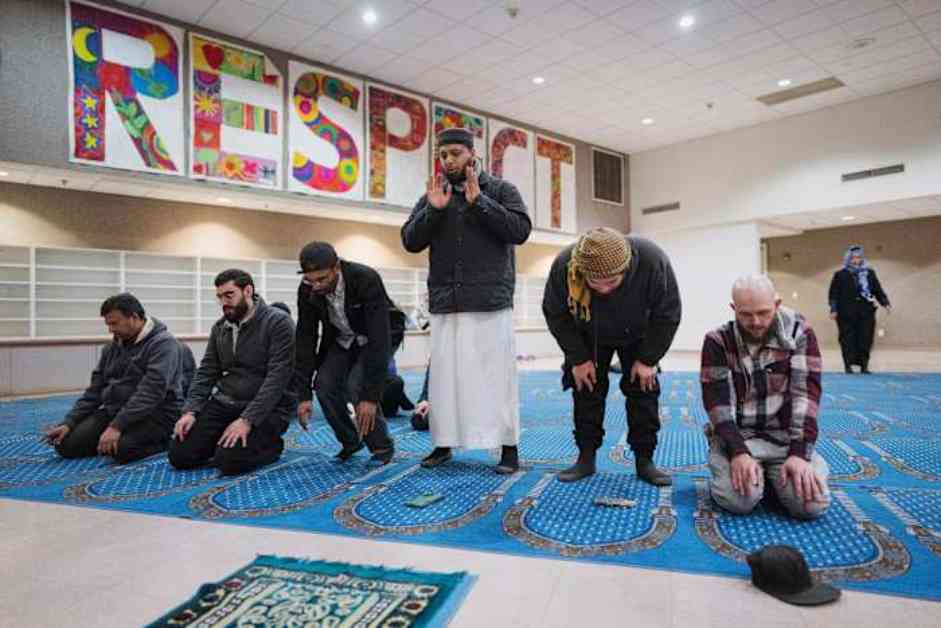PASADENA, Calif. – A devastating fire in the Los Angeles area left Masjid Al-Taqwa, a beloved mosque in Altadena, in ruins. The tight-knit Muslim community, which had gathered at the mosque for 42 years, was left without a place to come together for prayer and the upcoming Ramadan observance. The fire, part of the deadly Eaton blaze that claimed 17 lives and ravaged thousands of homes across Los Angeles County, struck hard, leaving many congregants displaced and emotionally distraught.
In the wake of the tragedy, about 20 mosque members and connected families gathered at a local Islamic school in Pasadena to pray and share a meal, marking their first collective gathering since the fire. Among them was Junaid Aasi, a dedicated volunteer imam, who brought a glimmer of hope to the somber group. Clad in traditional attire, Aasi announced that the school was offering its space for communal gatherings four nights a week during Ramadan. The relief was palpable as the congregation expressed gratitude with the phrase “Alhamdulillah,” signifying thankfulness to God.
Aasi, who has devoted 25 years to volunteering at the mosque, holds the memory of the destroyed property close to his heart. The daily rituals of ablution, the familiar prayer carpets, and the copies of the holy Quran are etched in his mind, along with the fig tree that once stood outside. The loss weighs heavy on him, and he knows that many members of the congregation are still struggling with displacement and emotional turmoil.
The mosque’s significance as a pillar of the community is evident in the stories shared by its members. Aaron Abdus-Shakoor, one of the mosque’s founders, recounts the evolution of Masjid Al-Taqwa from its origins as a meeting place for Nation of Islam members to a vibrant multicultural center for Muslim worship. The communal spirit of Ramadan celebrations at the mosque, once limited to Eid al-Fitr, expanded over the years to include daily iftar meals during the holy month.
For Salah Eddine Benatia, a recent immigrant, the mosque provided a sense of belonging in a new country. Despite the distance from his homeland, the warmth and camaraderie of the mosque community made him feel at home. Similarly, Farzana Asaduzzaman, a long-time resident, cherishes the memories of Ramadan celebrations at the mosque, describing them as a cherished family tradition.
The devastating loss of Masjid Al-Taqwa has had a profound impact on its members, like Mohammed AlDajani, who found solace and connection in the mosque’s diverse community. As a Palestinian American, AlDajani was moved by the mosque’s mural project depicting the Al-Aqsa Mosque in Jerusalem, a symbol of solidarity during times of conflict. The destruction of the mosque hit him hard, leaving a void in his daily routine and sense of belonging.
Despite the challenges of rebuilding their lives and community, the members of Masjid Al-Taqwa remain resilient. Sakeenah Ali, whose children attended a school near the mosque, witnessed the devastation firsthand but believes in the strength of her community. She emphasizes the importance of showing up, staying connected, and rebuilding together in the face of adversity.
As the community prepares to observe Ramadan in a new setting, the spirit of unity and faith that once filled Masjid Al-Taqwa lives on in the hearts of its members. The mosque may be gone, but its legacy of resilience and togetherness endures, a testament to the unwavering spirit of the Altadena community.















